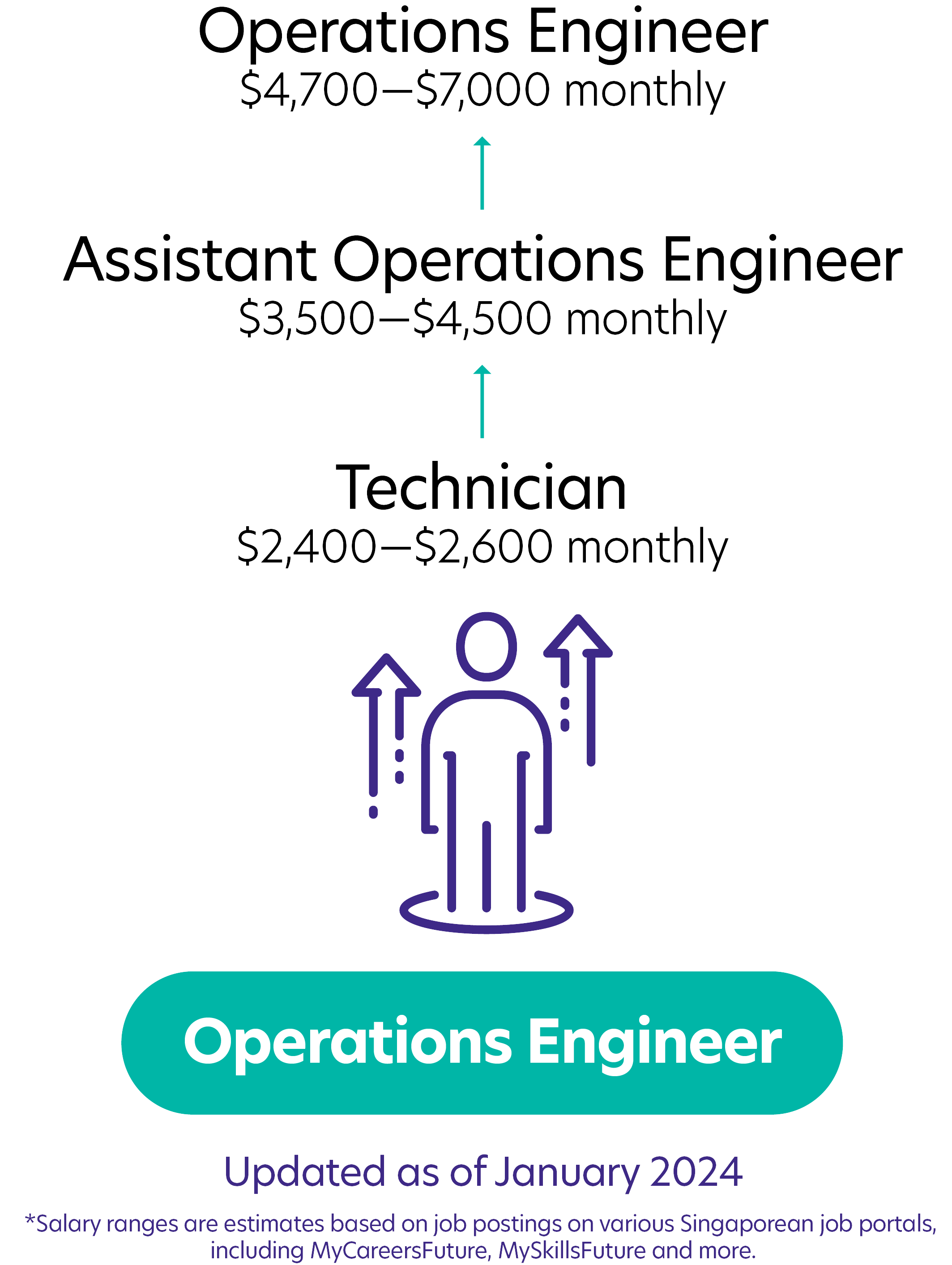
Operations Engineers ensure operations such as manufacturing and shipping run smoothly and efficiently.
Operations Engineer Job Description
- Investigate all operations-related issues, meticulously gather data, analyse symptoms and report all incidents related to operations.
- Come out with corrective measures to solve operational problems by repairing equipment, modifying processes, or introducing new technologies to prevent similar incidents from recurring.
- Set up processes to ensure smooth operations and help maintain machinery.
- Train and support employees involved in the operations project.
- Ensure workplace safety and operational effectiveness.
Note
Operations Engineers often discover simple changes that lead to huge savings or efficiency gains. Their keen eye for detail can turn a routine process into a company's secret weapon for success.
What you should know about Operations Engineer jobs in Singapore
Nature of work
Depending on the company, as Operations Engineers, you may need to work on rotating shifts.Key advice
Pick up Lean Manufacturing and Process Optimisation courses to help you advance in the role.-
Entry RequirementsEntry Requirements
- A diploma in Engineering Science or Engineering with Business Management Programme is preferred.
- Familiarise yourself with operating systems such as Linux and programming languages such as Python.
-
Possible PathwayPossible Pathway

Skills you need to pursue an Operations Engineer career in Singapore
Organisational Resource Management
Optimising the use of resources like machinery and workforce in complex operations settings.Equipment and Systems Repairs
Proficient in the technical upkeep and repair of industry-specific machinery.Technical Troubleshoot
Skilled in swiftly pinpointing and rectifying issues in sophisticated operational systems.Problem-Solving
Expertise in resolving unique operational challenges swiftly.Collaboration
Collaborative planning and execution to synchronise multi-departmental efforts in complex industrial operations.Decision Making
Make quick, yet informed decisions, especially in scenarios where operational efficiency and safety are at stake.Related Job Roles
Explore Other Programmes
Browse AllYou have bookmarked your first item!
Find it in My Discoveries with insights on your interests!










